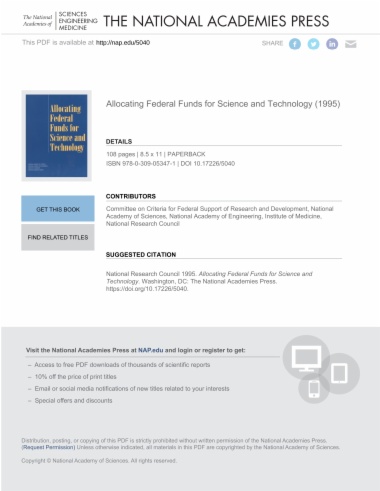

The United States faces a new challenge—maintaining the vitality of its system for supporting science and technology despite fiscal stringency during the next several years. To address this change, the Senate Appropriations Committee requested a report from the National Academies of Sciences and Engineering and the Institute of Medicine to address "the criteria that should be used in judging the appropriate allocation of funds to research and development activities; to examine the appropriate balance among different types of institutions that conduct such research; and to look at the means of assuring continued objectivity in the allocation process."
In this eagerly-awaited book, a committee of experts selected by the National Academies and the Institute responds with 13 recommendations that propose a new budgeting process and formulates a series of questions to address during that process. The committee also makes corollary recommendations about merit review, government oversight, linking research and development to government missions, the synergy between research and education, and other topics. The recommendations are aimed at rooting out obsolete and inadequate activities to free resources from good programs for even better ones, in the belief that "science and technology will be at least as important in the future as they have been in the past in dealing with problems that confront the nation."
The authoring committee of this book was chaired by Frank Press, former President of the National Academy of Sciences (1981-1993) and Presidential Science and Technology Advisor (1977-1981).